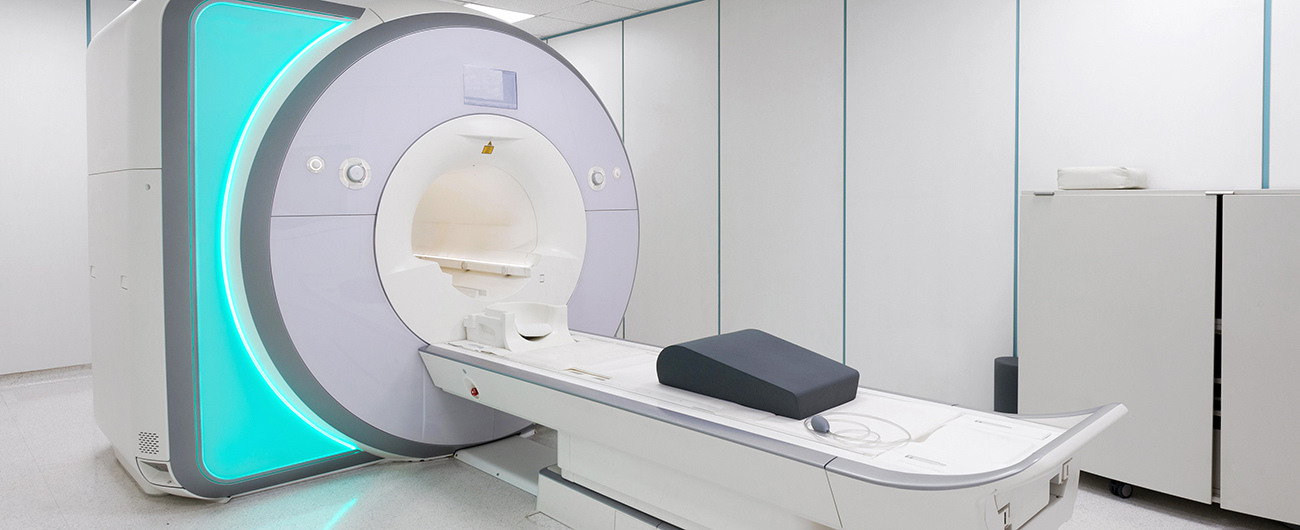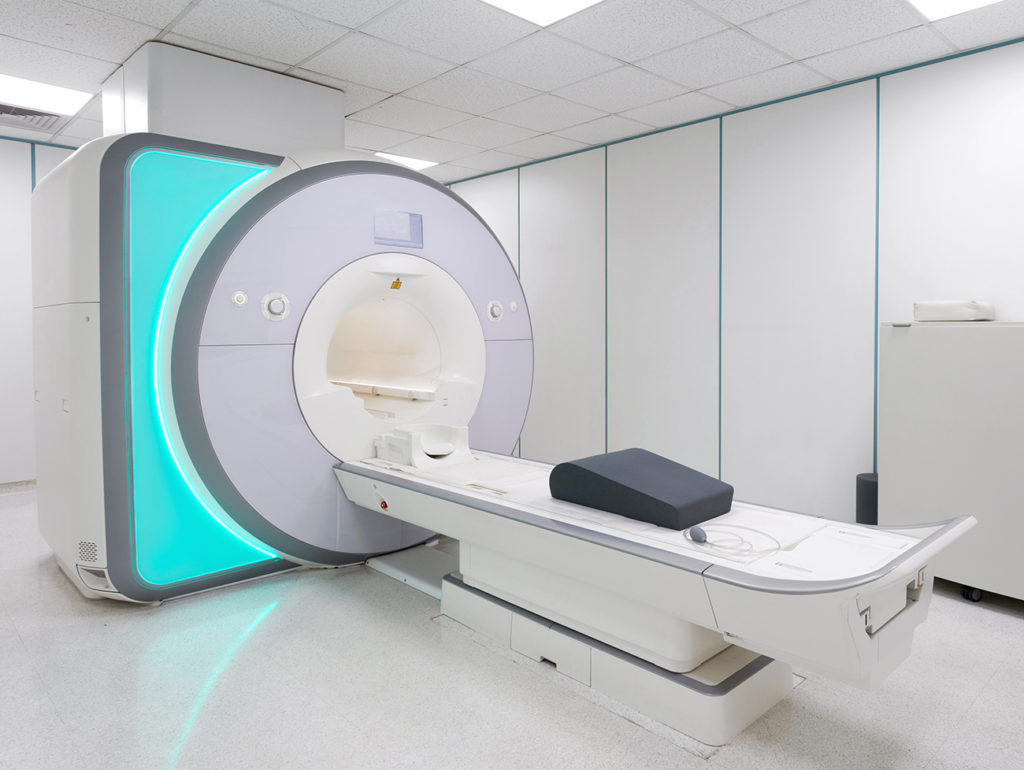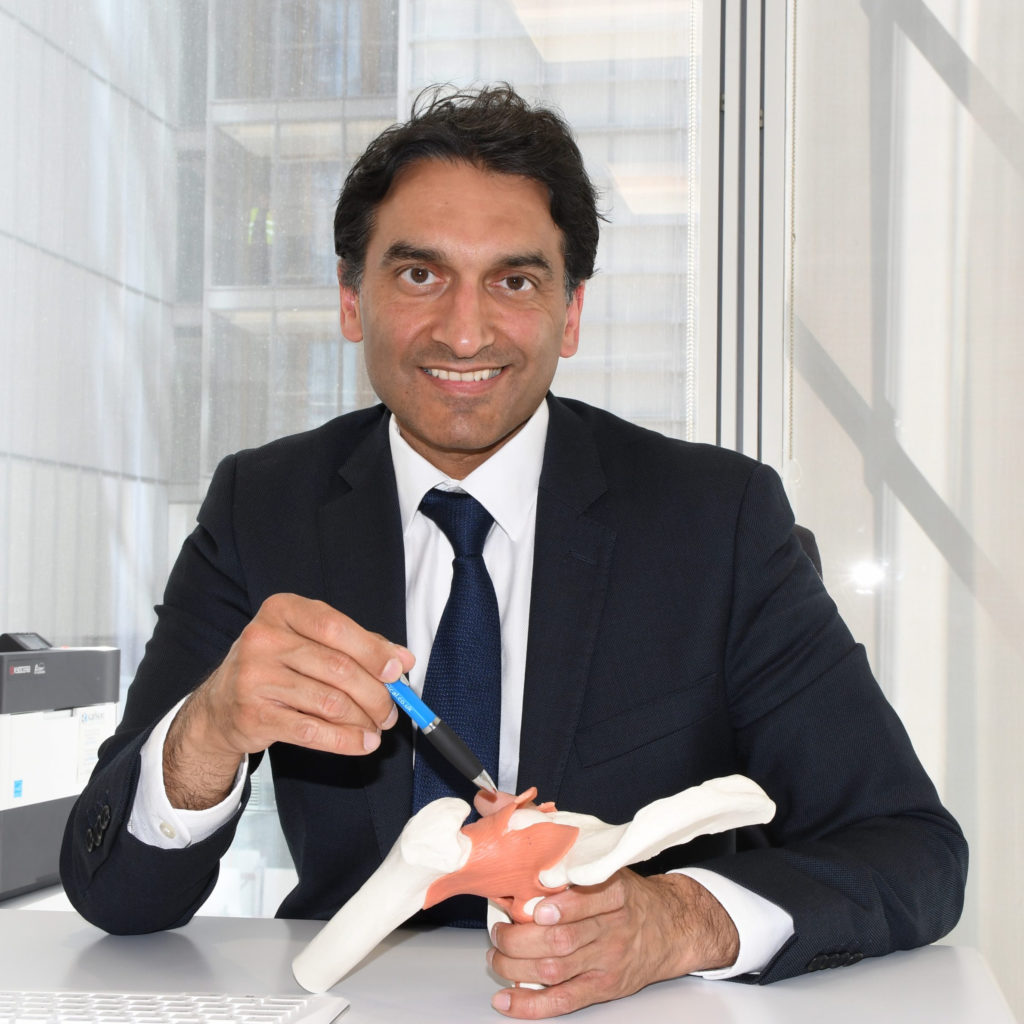
A GUIDE TO MRI SCANS –
Claustrophobia and Anxiety
Orthopaedic Opinions Blog
May 2023
Scans and tests are an effective way for a specialist to visually see an injury, condition, pain or other health issue. You may have been told you need an MRI (Magnetic Resonance Imaging) to examine a condition or an injury. This guide helps you to better understand MRI scanning and prepare you for your appointment. The guide also explores some ways to prepare for an MRI if you have claustrophobia or anxiety.
How does an MRI scan work?
It uses magnetic fields to align protons within your body. A radio wave is applied to the area of the body being studied, and this causes the protons to move out of alignment. When the radio wave is turned off, the protons give out a signal which is picked up by a detector. The information collected is used by a computer to produce a 3D image.
What are MRI scans used for?
MRIs are used to examine different parts of the body, including bones, joints and organs.
Are MRIs safe?
MRI scanning does not use ionising radiation and is therefore considered safe in comparison to other imaging techniques.
There are certain situations where MRI scanning may be contraindicated such as with recent surgery involving metal implants or metal fragments in the eye. Certain pacemakers or defibrillators may be incompatible. You will be asked to run through a checklist by the imaging department before the scan.
Can anyone have an MRI scan?
Most people can have an MRI scan, but sometimes an MRI scan may not be recommended for the above reasons.
How long does the scan take?
You will usually be told beforehand how long the scan will take. This can vary depending on the region being scanned and how many regions are being scanned. It is best to confirm this with the scanning team.
What are the main things I need to know?
- MRI uses a magnetic field and radio waves to create detailed images of the body’s internal structures.
- MRI scans are generally safe and painless.
- It is important to inform your healthcare provider if you have any metal implants or devices in your body, as these can interfere with the scan.
- Depending on the type of scan, you may be asked to hold your breath for short periods of time or to take deep breaths.
- After the scan is complete, you can resume normal activities right away.
- Your images are usually reviewed by a radiologist. The results will be discussed with you at a follow-up appointment.
- It’s important to follow any instructions provided by your healthcare provider or the MRI facility before and during the scan to ensure a successful and accurate imaging experience.
MRI scans and claustrophobia
For some people the idea of an MRI scan can be daunting, and some people may feel claustrophobic inside the MRI machine. Many facilities offer measures such as open MRI machines or music to help patients feel more comfortable.

An MRI involves passing through what is essentially a narrow tunnel. This can make some people feel claustrophobic, particularly if they don’t like being in confined spaces in general. If you are feeling apprehensive about an upcoming scan, researching and knowing what to expect can be helpful. Here are some things you may like to know:
The diagram shows a typical MRI scan – although it is fairly compact, there is space around you. It is open at either end so you are never completely enclosed.
You will be given information about what to expect beforehand, but if there is anything you need to know, try calling the radiology department before the day of your appointment to discuss your concerns.
The direction a person enters an MRI (Magnetic Resonance Imaging) scanner may vary depending on the specific machine and the facility where the scan is being performed. In most cases, a person enters the MRI machine feet-first while lying down on a sliding table that moves into the scanner. This positioning ensures that the area of the body being scanned is closer to the centre of the magnet, which produces the strongest magnetic field.
The head will usually be positioned first, followed by the rest of the body. The table will then slide into the MRI machine, with the person’s head and body remaining still throughout the imaging process.
It’s important to note that the specific instructions for entering the MRI scanner may vary depending on the type of scan being performed and the individual’s medical condition. Your healthcare provider or the MRI facility where you’ll be receiving the scan will provide you with specific instructions on how to position yourself for the scan.
The radiographer can talk to you during the scan and advise you on what to do if the scan needs to be stopped. It is often comforting to know that you have this option.
MRI scans and anxiety
You may be feeling anxious before an MRI, particularly the first time you have one, as it is an unknown situation. This could be because you are worried about feeling claustrophobic, are worried about what to expect at the scan, or if you have anxiety and find unknown situations difficult.
Everyone will have different coping mechanisms to ease and overcome anxiety is such a situation as this. You may find that some of these factors help to ease your anxiety:
Sometimes knowing what to expect can help. If you’ve come across this blog because you are anxious about an upcoming MRI scan, then reading about what will happen at your scan may be helpful.
Try distracting yourself from being in the scanner. Visualising something in your mind, thinking of happy thoughts, or meditating may help you to reduce your anxiety. You may sometimes be able to ask for music to be played (depending on the facility).
Thank you for reading this blog post. To find out more about other tests and scans including CT scans and X-rays, go to https://ortho-surgery.uk/index.php/x-rays-scans-tests/
Useful resources:
– You can find out more about MRI scans here: https://www.nhs.uk/conditions/mri-scan/

Mr Vipin Asopa, PhD, FRCS (Tr & Orth), MBChB, BSc (hons)
Specialist Consultant Hip and Knee Surgeon in London, with a particular focus on hip pain, knee pain and sports injuries.
Mr Asopa performs numerous surgical procedures including hip and knee joint replacements, arthroscopy, ACL surgery, as well as treating arthritis, ligament injuries, trochanteric pain and more.
To book an appointment with Mr Asopa:
Call: +44 (0) 794 319 1592 | Email: admin@ortho-surgery.uk